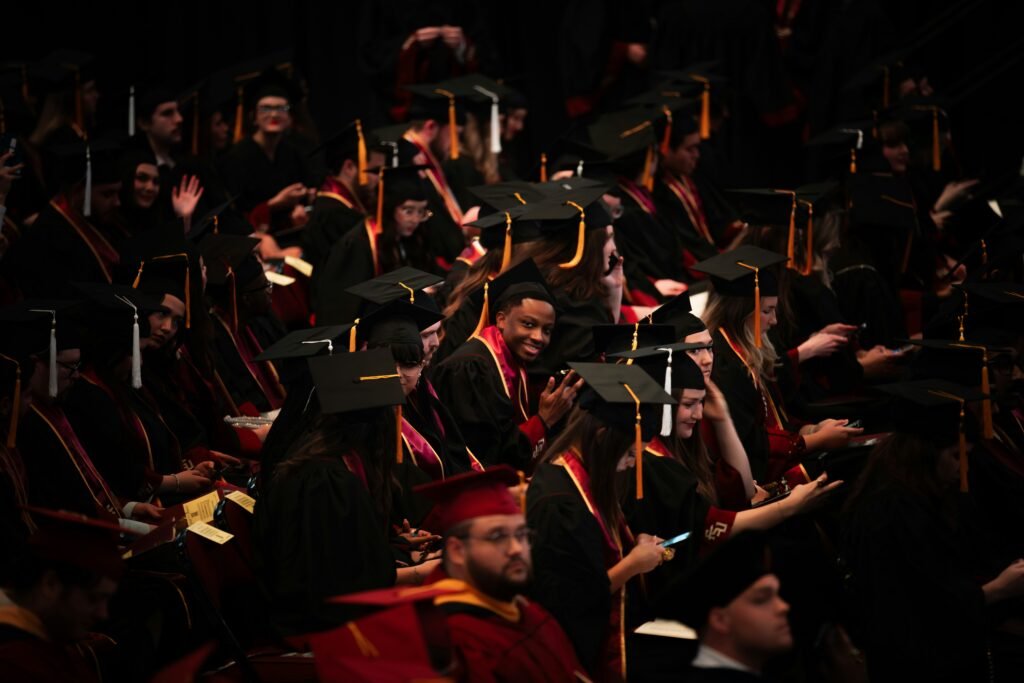Career Growth
The New Realities for College Graduates in the Age of AI
Another uncomfortable truth is emerging in the age of artificial intelligence (AI): for today’s recent college graduates, technological change really may be “different this time”—and not in their favor. While AI promises massive advances and enormous valuations—Anthropic was valued near $170b just six years after founding, and xAI is in talks for $200b—its disruptive impact is felt far beyond Silicon Valley’s boardrooms.

High-Powered AI Growth — and Surging Compensation
There’s no question AI is here to stay. Top leaders in tech are reaping unprecedented rewards, like Apple’s head of AI models reportedly landing a pay package north of $200m at Meta. The world’s business titans are bracing for an “AI tidal wave,” rapidly shifting corporate priorities and talent strategies. But the surge is not lifting all boats. Entry-level talent, especially those newly minted with degrees from prestigious universities, are encountering turbulence the likes of which hasn’t been seen in decades.
Unemployment Trends: College Graduates in Uncharted Waters
Historically, the unemployment rate for recent college graduates in the United States has been lower than for the general population. Yet, for the first time in 45+ years, that relationship has reversed: recent grads now face higher unemployment than the broader workforce. As Oxford Economics’ Matthew Martin notes, “higher educational attainment” no longer guarantees better job prospects. For graduates like Tiffany Lee (Cornell, information science and psychology) and Jacob Ayoub (Boston College, economics and finance), who secured excellent grades and coveted internships, landing a full-time role remains elusive.
Why Are Entry-Level Jobs So Hard to Find?
Graduates are applying for hundreds of jobs—sometimes with little response. In fields like tech and finance, entry-level positions are particularly scarce, with job postings down 21% from pre-pandemic levels, according to Indeed data. Many roles now require 2-3 years of experience even at the supposed entry point, creating a Catch-22 for newcomers.
The reasons are multi-layered:
- The post-pandemic hiring surge has subsided, leading to an overall cooler labor market.
- AI adoption is rapidly accelerating, particularly in tech, where 25% of businesses now regularly use AI, compared to a national average of 5%.
- Sectors traditionally seen as “safe bets” for high-achieving grads—tech, finance, law—are at the forefront of automation and process reengineering.
AI’s impact is direct: Anthropic’s CEO predicts it could “wipe out half of all entry-level white-collar jobs.”
Shifting Opportunities: Who’s at Risk, Who’s Protected
The challenges aren’t distributed evenly. Data reveals men are more likely to struggle: they gravitate toward computer science and tech roles, which face shrinking opportunities. In contrast, women are more often moving into healthcare and education, fields with robust demand (over 40% of female graduates enter these sectors, compared to just 5% of males in healthcare).
What Can Today’s Graduates Do?
The advice from business leaders is clear—stay flexible and build the skills AI cannot easily replace:
- Critical thinking and judgment.
- Broad-based learning in the humanities.
- Interpersonal skills and creative problem-solving.
These “human” attributes are likely to remain in demand, even as AI reshapes the world of work. “Judgment is not going out of style,” says Centerview Partners’ Blair Effron.
Yet, for those in the thick of the search, the long-term promise of AI seems remote in the face of immediate frustration. Many are now weighing costly graduate degrees simply to compete for jobs that once required only a bachelor’s, and questioning whether the system is broken—or whether the rules themselves have changed.
Bottom Line
College graduates did everything right, yet the world shifted underneath them. The AI era is rewriting the rules—fast. Those able to adapt, broaden their skillset, and leverage their uniquely human strengths will be the ones best positioned to ride the next wave, whatever shape it takes. For now, flexibility and resilience are the keys in a workplace transformed by artificial intelligence.